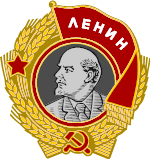I know historical hindsight is 20/20, but how did no one bully this guy into giving up his moronic "de-stalinisation" policy? Like the SU was built by Stalin and now suddenly hes satan incarnate? No wonder SU citizens lost faith in the party over time, how can you trust a bunch of weather vanes?

The result is that beyond the works of Grover Furr and Domenico Losurdo’s “Making of a Black Legend," there are virtually no widespread English literature that portrays Stalin in a positive light. When even the USSR adopted the position of denouncing Stalin following Khrushchev, there was no opportunity for works that positively portray Stalin to be published. If you were an anticommunist, you were against Stalin. If you supported the USSR, you accepted their narrative about Stalina and thus you were also against Stalin. Only a few principled Marxist-Leninists denounced anticommunism and stood by Stalin’s side, but they were deeply marginalized with no institutional publishers to support their writings and this ideological isolation led many of them to become ultra-leftists. It also means that any history of the Stalin period, including all coverage of Soviet feats in WWII, is inescapably covered with tedious tirades against "Stalinism" in every second paragraph. As Keeran and Kenny write:
Compare this to Deng’s formulation of 70%/30% for Mao, which he borrowed from Mao’s own profound 70%/30% formulation for Stalin. The trick was not to claim that Stalin was faultless and without blame: he made mistakes and as shown above, many in the Comintern thought those mistakes were fairly sizeable. Claiming Stalin was 100% right would have been laughably dogmatic and would have sounded insincere to those who thought they knew better. 70% right and 30% wrong was the perfect balance: Stalin saved the USSR from Hitler’s genocidal lebenstraum and his leadership led to the indisputable (until today) role of the USSR as the primary contributor to the defeat of Hitler-fascism and the liberation of Europe and his faults, no matter how large they seemed to anticommunist freaks, were dwarfed by this shadow. 30% is not too high as to compete with his achievements but not too low as to dismiss his faults either. This is the principled line that should have been adopted with Stalin and was adopted for Mao. As such, Chinese people can cognitively accept the idea of Mao’s faults without having their entire worldview shaken like what happened with Soviet people and global leftists following the 20th Congress, who the USSR itself stripped them of their weapons to defend against anticommunist propaganda.
This is how, despite all the same copycat anticommunist propaganda barrage against Mao and all the Ivy League and Oxbridge University Presses printing out endless slop attacking Mao about his “great famine” and the “tragedy” of China’s liberation, they’ve ended up screaming into the void because the CPC maintained the achievements of Mao, allowing for a coherent historical narrative that has the strength to reject Western propaganda assault. This is why the modern Western academic line of attack on China is to promote “historical nihilism,” which is basically begging Chinese people to be “nihilistic” and forget the entire coherent historical narrative they are taught and accept the West’s anticommunist revisionist propaganda instead. With the USSR, there can be surgical strikes on Stalin himself. With China, the only option to to slam impotently against the wall of China’s own history to try and get at Mao.
Mao’s portrait still hangs proudly in Tiananmen and up to this day, Western Marxist-Leninist authors still often publish positive historical accounts of Mao and many leftist movements that distance themselves from modern China itself like the Communist Party of Nepal-Maoist, Communist Party of the Philipines and Communist Party of India (Maoist) still nonetheless proudly call themselves Maoist parties. Through them, the term “Maoist" is a (chauvinistic) source of pride, distinguishing themselves and their “correct ideological stance” from normal Marxist-Leninists. The term "Stalinist,” however, through the disintegration of a counter-narrative, has been entirely appropriated by anticommunists as a slur.
This was an extremely informative read. It answered a number of questions I've had rattling in my brain that I just never dug around enough to get good information on. Thank you for these comments.
Amazing write up comrade